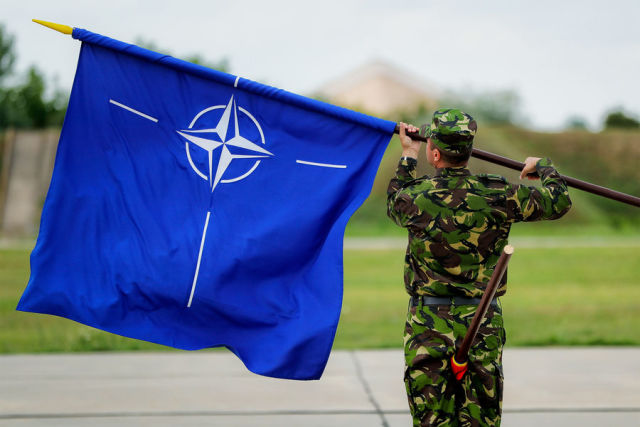Ex-Colonel of the General Staff Khodarenok told what reforms NATO needs
Finland and Sweden have applied to join the North Atlantic Alliance. They were opposed in Turkey and Croatia. "Newspaper.Ru" figured out how effective the NATO management structure is today.
Not all member states of the North Atlantic Alliance are happy about potential new members of the military bloc. In particular, Turkish President Recep Tayyip Erdogan once again stated that Ankara would not support the idea of accepting Finland and Sweden into NATO. Turkey has blocked the process of reviewing their applications.
Erdogan justifies Ankara's position by saying that representatives of the Kurdistan Workers' Party (PKK), recognized as a terrorist organization in Turkey, "operate in these Scandinavian countries." In particular, the Turkish leader pointed out that these countries refuse to extradite people whom Ankara considers terrorists, and also imposed sanctions against Turkey.
In addition to the requirements related to the PKK, Ankara demands to lift restrictions on the export of weapons from it, to lift sanctions for the purchase of Russian S-400 systems and to return it to the program for the production of American F-35 fighters.
In addition, according to the Croatian leader, "the interests of Finland and Sweden, as well as Ukraine, are not the most acute problem for Zagreb."
Nevertheless, according to the administration of US President Joe Biden, the doubts of Ankara and Zagreb will be removed and the NATO countries will unanimously decide to grant membership to Sweden and Finland. Biden has repeatedly stated that Finland and Sweden "meet all the criteria for membership in NATO."
In this regard, it should be noted that so far all decisions in the North Atlantic Council are taken exclusively by unanimous consensus. Thus, making decisions about joining the ranks of each new member of the alliance becomes more complicated, and this makes NATO a frankly ineffective organization.
It is difficult, and sometimes impossible, to make any operational decision by consensus in an organization of thirty participants.
The NATO bloc is incapacitated today. Any proposal by the United States, and this is the first army in the world, can be blocked there not even by Turkey or Croatia, but by the state-owner of a cornfighter aircraft or two motorized infantry battalions, if it is in the bloc.
This situation cannot be considered normal from the point of view of the American military and politicians. Therefore, the modernization of the management structures of the North Atlantic Alliance in the near future looks absolutely necessary for the Pentagon.
There are currently several options for "upgrading" NATO, but there are two main ones among them. The first is to make decisions in the North Atlantic Alliance by a simple vote. In this case, it will be relatively easy to carry out a project through NATO that meets, say, the considerations of the White House.
The second option is to create a kind of "board of directors" within the military bloc, which would include several leading states of the alliance. For example, they could include the United States, Great Britain, Canada, Germany. Many analysts in the West believe that France, with its special opinion on any military-political issue, would be inappropriate to include in such a board of directors. Paris can derail any solution that was carefully developed in the Pentagon.
In the absence of systemic reforms, NATO risks turning into a discussion club, where the procedure for making even elementary decisions can stretch for many months, which in the current military-political situation may look like a deadly phenomenon for the bloc.
The opinion of the author may not coincide with the position of the editorial board.
Biography of the author:
Mikhail Mikhailovich Khodarenok is a military columnist for the newspaper.Ru", retired colonel.
He graduated from the Minsk Higher Engineering Anti-Aircraft Missile School (1976), the Military Air Defense Command Academy (1986).
Commander of the S-75 anti-aircraft missile division (1980-1983).
Deputy Commander of the anti-aircraft missile regiment (1986-1988).
Senior Officer of the General Staff of the Air Defense Forces (1988-1992).
Officer of the Main Operational Directorate of the General Staff (1992-2000).
Graduated from the Military Academy of the General Staff of the Armed Forces of Russia (1998).
Columnist of "Nezavisimaya Gazeta" (2000-2003), editor-in-chief of the newspaper "Military-Industrial Courier" (2010-2015).
Mikhail Khodarenok

